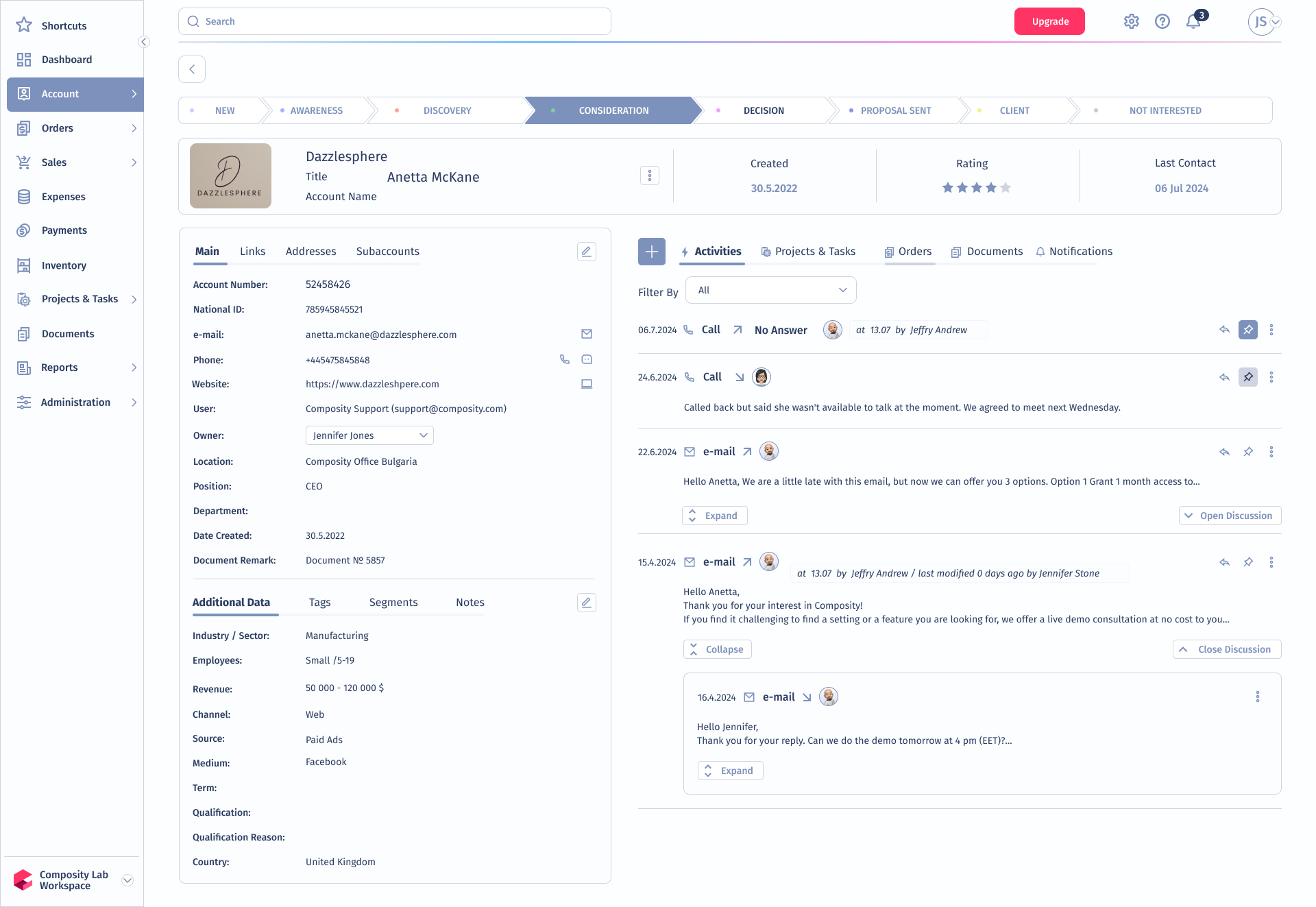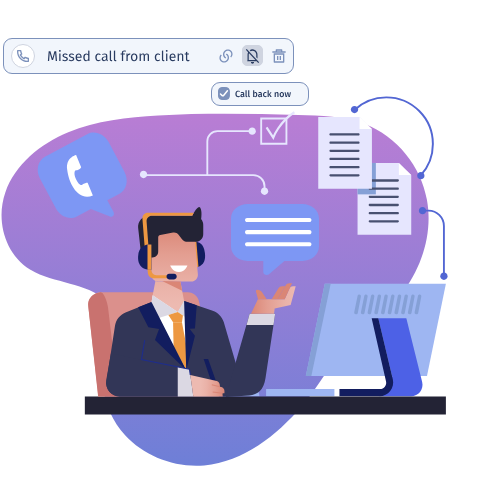What is a CRM?

Introduction to CRM (Customer Relationship Management)
Customer Relationship Management (CRM) refers to the strategies, processes, and software businesses use to manage and improve interactions with existing and potential customers. .
A CRM system serves as a centralized hub for customer data, offering tools for tracking sales leads, automating customer communications, and managing support inquiries
The main focus is building long-term relations and customer loyalty . It helps you improve your interactions with customers and how you do business overall., minimizes errors, and improves collaboration across teams.
What is CRM Software?
CRM software is a powerful tool designed to enhance customer engagement by managing interactions throughout the customer lifecycle. It is a software where you collect and structure information about your customers from a range of different channels, including a company’s website, phone, email, marketing campaigns, manual data entry, and more.
By consolidating contact information, tracking customer journeys, and automating routine tasks, CRM software enables teams to provide a seamless and personalized experience.
Using a CRM solution assists you to offer a more individual contacting approach and to provide superior support. A CRM system integrates and automates sales, marketing, and customer support in a single solution so you can more easily access and manage all customers' related activities.
Explore Composity’s CRM Solutions to discover how our flexible CRM software can enhance your customer relationships.

How Does a CRM Work?
A CRM system works by capturing and organizing customer information from various touchpoints, such as website inquiries, emails, calls, and social media. This data is processed and made accessible across departments, allowing teams to track every stage of the customer journey.
For instance, a lead captured by marketing can be monitored through sales and into post-purchase support, with each team accessing relevant data along the way. By connecting departments, a CRM enables seamless transitions between each customer interaction, creating a unified and efficient experience.
Key Features of a CRM Solution
CRM solutions offer a range of features that empower businesses to manage customer relationships effectively. With tools designed to improve communication, streamline workflows, and provide actionable insights, CRM systems enhance the customer experience while driving operational efficiency.
|
|
|
|
|
|
|
|
|
|
Benefits of Using a CRM for Small and Medium-Sized Businesses
A CRM solution can benefit you in many ways, but most importantly it helps you convert leads into loyal customers, close deals, and enhance customer service, leading to greater loyalty and retention.
Here are some of the top benefits that CRM solutions provide:
| Enhanced Customer RelationshipsCRMs consolidate customer information, making it easy to access customer history, preferences, and interactions. |
Improved Sales and ProductivityCRMs streamline sales processes, enabling sales teams to track leads, manage pipelines, and automate repetitive tasks. |
|
Better Data Organization and InsightsBetter Data Organization and Insights (h3) By centralizing data from multiple touch points, CRMs offer comprehensive insights into customer behavior and | |
Increased Collaboration Across TeamsCRMs act as a shared platform for sales, marketing, and customer support teams. | |
Enhanced Customer RetentionWith tools like follow-up reminders and customer satisfaction tracking, CRMs help businesses stay engaged with their clients, providing the support needed to improve retention. | |
Scalability and CustomizationFrom integrating with other tools to customizing workflows, CRMs offer flexibility to align with evolving business needs and processes. |
CRM Implementation Process
Successfully implementing a CRM system involves planning, configuration, data migration, and user training. The process starts with identifying business needs , then setting up the CRM to fit those requirements, and migrating any existing customer data.
Training ensures that staff are comfortable with the CRM, which is key for maximizing its benefits. A well-executed implementation boosts productivity from day one, allowing teams to work more cohesively and deliver better customer experiences.
For more details on implementing a CRM, . explore Composity’s process here .
Why choose a Cloud-Based CRM software?
Choosing a CRM tool can seem like a huge step. Especially if you have in mind Salesforce or some other large solution. But this should not make you jump back to the familiarity of Excel spreadsheets, as there is a new generation of solutions that are designed for small and mid-sized companies - they are all easy to use and quick to implement.
Cloud-based CRM software offers unparalleled flexibility and accessibility, allowing you to access customer data anytime, anywhere. With no need for extensive hardware or IT infrastructure, cloud CRMs are cost-effective, easy to implement, and automatically updated with the latest features and security enhancements.
This means you can scale as your business grows, collaborate in real-time, and ensure your data is secure—all without the hassle of on-site maintenance.
Start Today
FAQ
What does CRM stand for, and what does it do?
CRM stands for Customer Relationship Management. It’s a type of software that centralizes and manages customer interactions, helping businesses improve customer engagement, sales efficiency, and support quality.
What are the main benefits of using a CRM?
Key benefits include enhanced customer satisfaction, improved sales efficiency, increased data accuracy, better collaboration, scalability, and lower customer acquisition costs.
Is CRM only for large businesses
CRM is beneficial for businesses of all sizes. Small businesses can use CRM to manage customer relationships more effectively, streamline daily operations, and scale their business without needing to invest in multiple tools.
Can I integrate a CRM with other software I use?
Yes, CRMs can integrate with other business tools like email marketing platforms, accounting software, and e-commerce systems. These integrations help create a connected ecosystem that streamlines workflows, reduces time spent on data entry, and ensures information flows seamlessly across your business tools.

